5. Nicole Kidman – Dogville
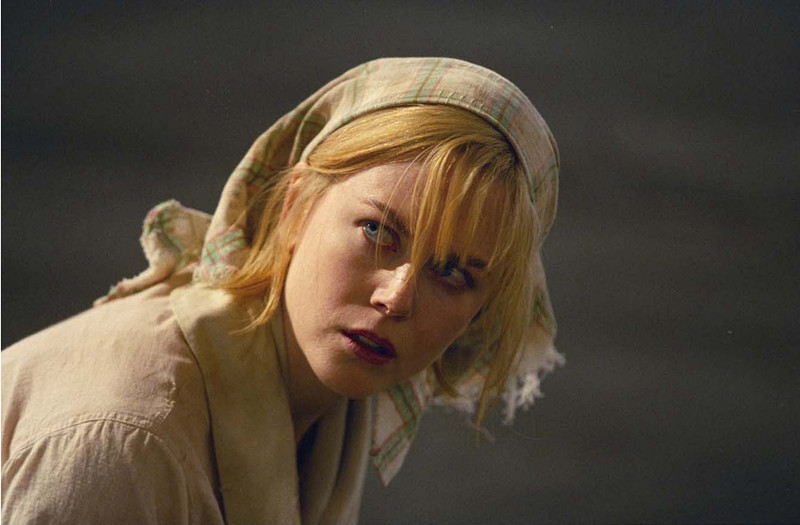
Lars Von Trier has made a name for himself as the enfant terrible of art cinema. His films have an air of pessimism and forthrightness that most filmmakers cannot pull off, and has earned him a cult following. In Dogville, he attempted to tell a story stripped of usual cinematic elements like music and setting. It takes place in Dogville, a small town that is actually just a minimalistic stage.
Nicole Kidman plays the main character Grace, a naive woman who comes to Dogville in search of a new beginning. What starts off as a symbiotic relationship between the townsfolk and Grace ends up turning into an abusive relationship. Grace’s meekness and position as an outsider enable the people of Dogville to take advantage of her.
Kidman once again shows that she is able to pull off painfully sensitive roles as well as dominant ones. A comparison and honorable mention for this list is Bjork in Dancer in the Dark, another von Trier film. The Dane auteur definitely has a penchant for making martyrs of his alienated female protagonists. Unlike Selma in Dancer in the Dark, however, Grace has a vengeful side to her. The town’s moral corruption ends up having an impact on her, and Kidman brings this nuanced character to life in an extremely difficult performance. She really bends the audience to her mercy. Easily one of the best contemporary acting performances and among the Aussie’s finest work.
4. Sandrine Bonnaire – Vagabond
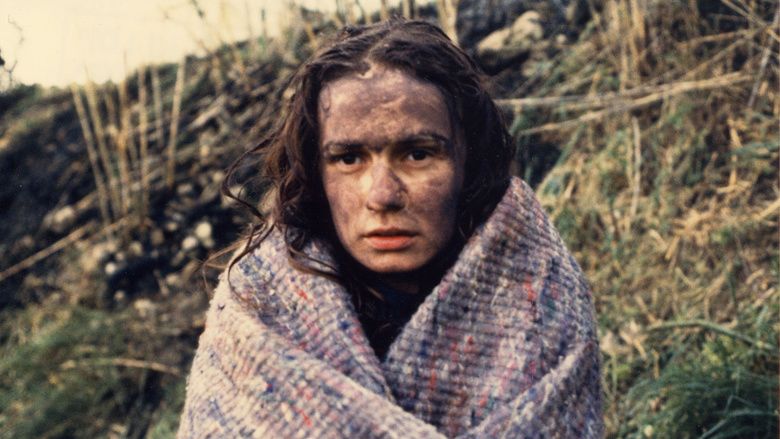
From the opening scene, we know the fate of Mona, the protagonist of Agnes Varda’s 1986 drama. The film begins with her body being found by the police in a frozen ditch. The rest of the film is a retrospective on the last months of Mona’s life, using the various people she met along the way as anchor points. Mona decided to quit her job in the city and wander around France aimlessly. She works a series of odd jobs and marks the lives of certain people. It is revealed that Mona was a quiet woman who is able to use both aggression and charm to get what she wanted. Bonnaire’s worn yet pretty look enhances the progressive tiredness of her character’s journey. Mona acts as if loneliness equals freedom, and the film asks whether or not that is true.
Vagabond is basically a story of a woman trying to define her life outside of the confines of capitalism and normality. How long can a woman keep up that life? Bonaire’s performance as Mona makes us wonder all these things while forming an attachment to her. Even if at times she is not the most likable, her flaws and errors are human. She pulls us into the journey and even though we know the destination, it’s a mesmerizing ride.
3. Antonio Banderas – Pain & Glory
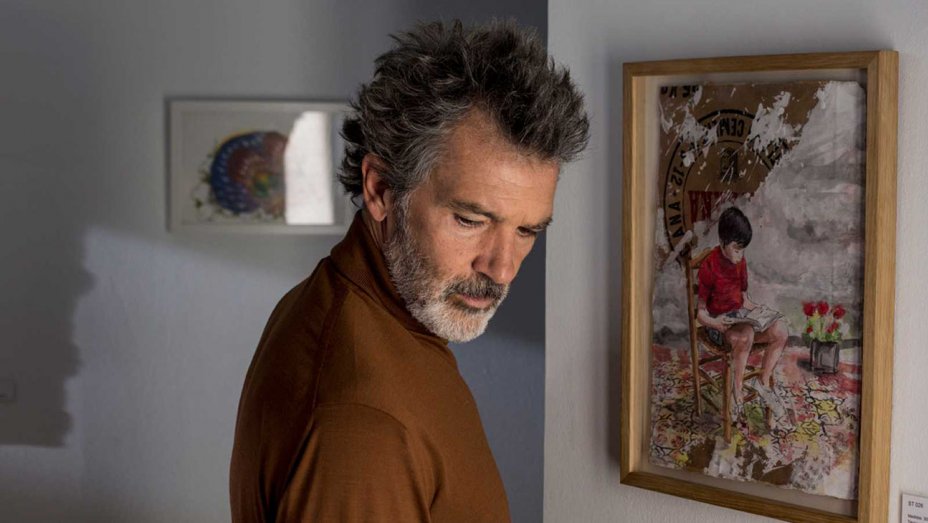
Pedro Almodovar is a director that has covered multiple genres while always keeping to his style. It is not hard to recognize an Almodovar film. Pain & Glory stacks up in the auteur’s filmography as one of his most mature works. It’s the story of a weary film director trying to reconcile with his past and his present. Banderas plays the director Salvador, who bears a slight resemblance to Almodovar himself.
It’s a film that could’ve ended up appearing too sappy and emotionally vacant, but Almodovar’s masterful command of storytelling and Banderas’ amazing performance make it one of the director’s best.
Salvador is in pain. He is on the downward slope of life, partnerless and sick. He is addicted to heroin and uninspired to work. Banderas does not make Salvador appear as a pitiful old man. He plays him as a man who has lived and loved, a man who even though is going through difficulty is able to maintain sharpness and a sense of humor. It seems like he has been playing him all his life. He comfortably inhabits the character. His regrets, desires, and dreams are palpable enough that the audience is able to be gripped through the detailing of his life only. Banderas received a well-deserved Oscar nomination for Best Actor for the role. The first of his career. Almodovar wrote a character very much like himself, and who better to play him than his old time friend and collaborator?
2. Harry Dean Stanton – Paris, Texas
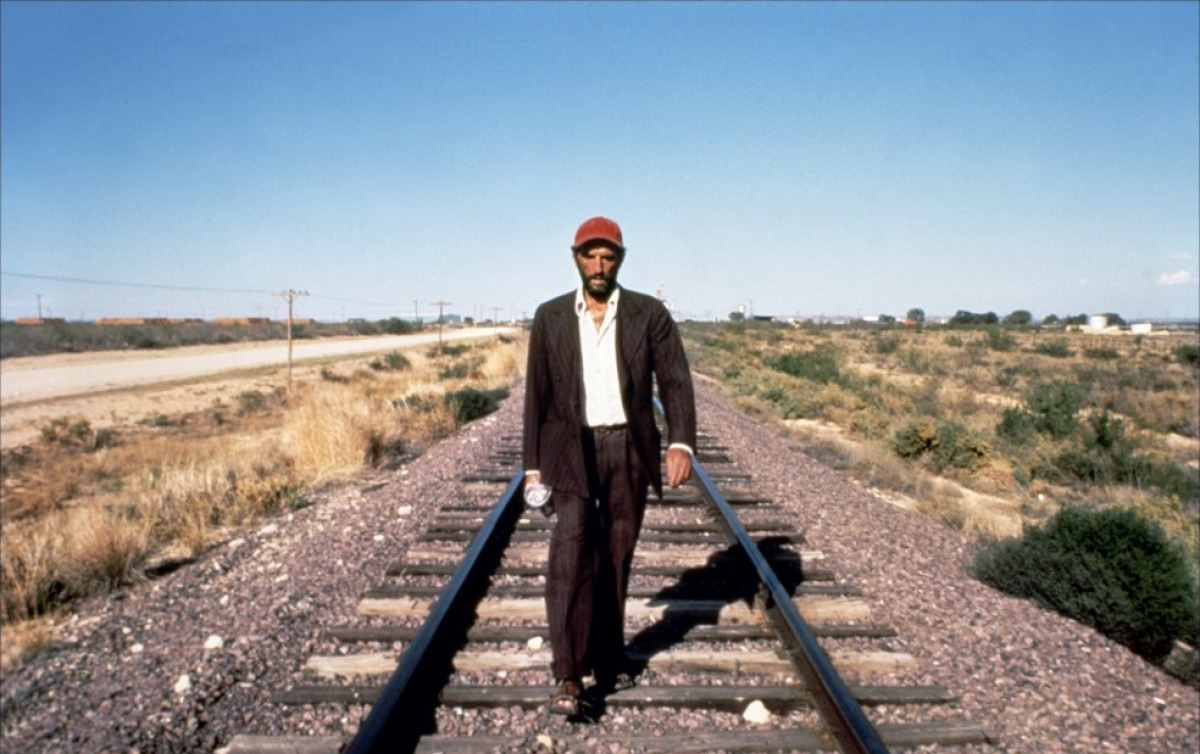
What a better fit for this list than a character who doesn’t speak. Well, he does, but for the first half of Paris, Texas, Stanton’s Travis sleepwalks through life. The film begins with him wandering the desert aimlessly. He appears to be in some sort of shock and refuses to talk. We later learn that it all began after he broke up with his wife. The film details Travis’s healing process as he reconnects with his wife and son. Wenders’ film won the Palme d’Or at Cannes, and Stanton’s performance was definitely part of its success and continued admiration.
It is an extremely internalized performance. Even when Travis begins to talk, he is a very quiet and mellow man. Harry Dean Stanton was a character actor who played roles that were always fully rounded, yet not always central to the story. He sort of brings this energy to Travis. Even though he’s the protagonist, Travis appears to be in the fringes of the story, almost as if he doesn’t want to be part of it. Other characters constantly talk over him and tell him what to do. This makes the progressive growth of the character as he takes agency and starts to attempt to tie up loose ends all the more satisfying.
In the climax, Travis’ character arc comes to a close in a jaw-droppingly emotional scene. Harry Dean Stanton was rarely a lead actor, and Paris, Texas is proof of how much he could absolutely nail it as one.
1. Liv Ullmann – Persona
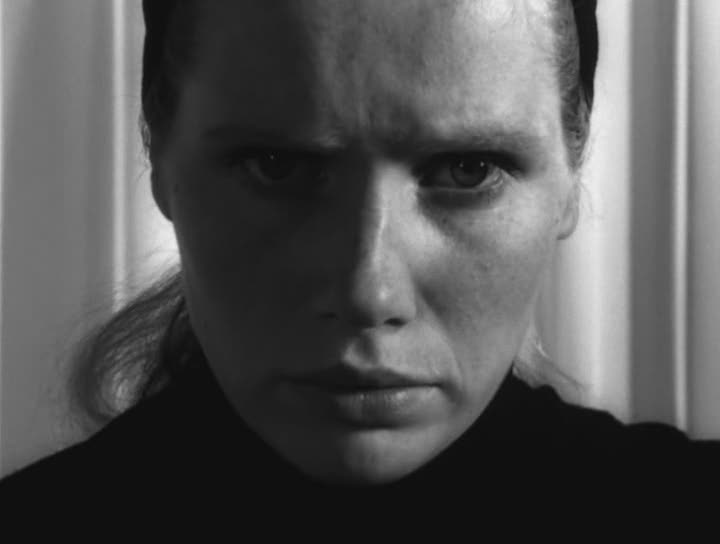
In Bergman’s 1966 tour de force, Liv Ullmann plays Elisabeth Vogler, an actress who has decided to stop speaking. This may not seem like a very difficult role to ace, but Persona is a film that is as much about what is not said as what is. It is a very dense film that has compelled varied interpretations throughout the years. It is a deeply mysterious film and at the heart of it is the relationship between Ullman’s Elisabeth and Bibi Andersson’s Alma.
Throughout the film, Alma talks and talks, and Elisabeth says nothing. Alma bares her soul, cries, and yells, and Alma sits quietly. But Ullmann’s facial acting makes the film completely engaging. A glance that could mean one thing could mean the opposite. A smile could mean pity or ridicule. She plays a character as mysterious as the story, and watching it, it is hard to imagine anyone else better fit for the role.
Ullmann as Elisabeth is both mystifying and completely realistic. She is hard to understand yet as completely relatable. It is a paradoxical role and a paradoxical film. In Persona, Ullmann does more with a single glance than many actresses do with a complete performance.